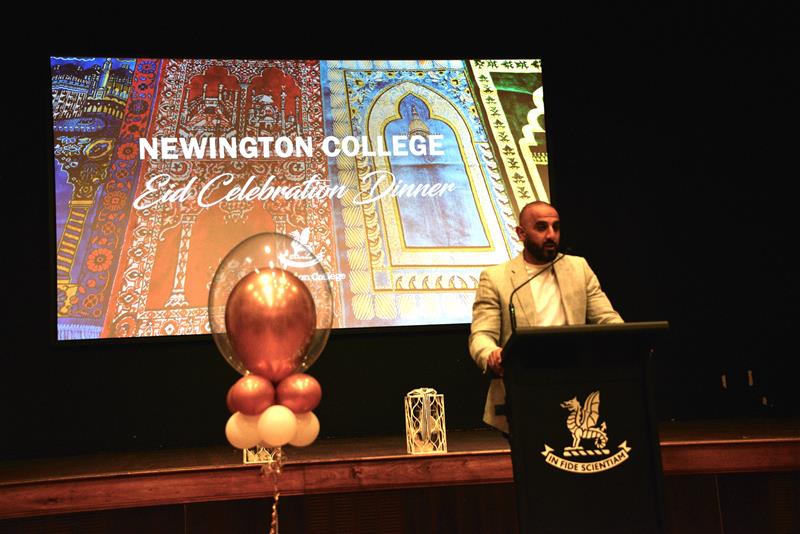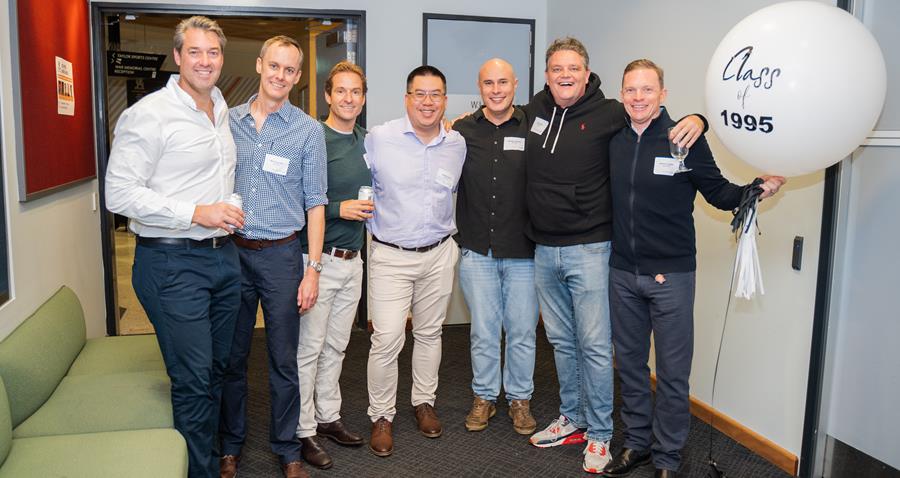Interfaith Panel on Religion and Ethics
The stars were out on Wednesday 20 July as a packed audience of Newington boys, staff, members of the public and students from neighbouring schools filled out Old Boys Lecture Theatre for the Centre for Ethics public lecture on Religion and Ethics. This time featuring an interfaith panel made up of Buddhist Nun, the venerable Robina Courtin, Muslim academic, Dr Susan Carland of Monash University, Dr Bill Leadbetter of St Georges Cathedral in Perth, Director of the Jesuit Refugee Service, Father Aloysious Mowe and Rabbi Jacqui Ninio of Emmanuel Synagogue in Sydney. There was no doubt that this brains trust would bring a wealth of challenging ideas and lively debate.
The night started with the question: Should religion stay out of politics?
Dr Bill Leadbetter of St Georges Cathedral in Perth, and Labor candidate in the most recent Federal election said, “Once we take religion out of politics it’s no longer a democracy.” Father Mowe agreed claiming that while religion is not the only guide to ethics these days, it remains a fundamental part of the life of a big portion of the world population and therefore holds value. Does being atheist not influence the way a person thinks argued Rabbi Jacqui Ninio.
The idea that people who do not belong to a religion are more neutral or would have a more objective standpoint to bring to politics is simply not true said Dr Carland, herself a Muslim academic who herself grew up Christian in Suburban Melbourne.
The question about same sex marriage and sexuality was next on the list as an audience member asked the panel whether religions needed to review and update the way they approached same sex relations.
Father Mowe led the discussion, explaining that the question is not so much about sexual orientation or modern day sexuality but how we understand human nature.
“In the Catholic tradition, human nature is something that remains to be discovered because it’s so complex. God does not create rubbish. If you are, as Lady Gaga says, ‘born this way’, then that raises fundamental questions for us as thinking Christians about sexuality.”
For the Venerable Robina Courtin’s, it’s a ‘none-of-your-business’ type of question she said, and again Dr Leadbetter reframed the question saying that the issue is not to do with who gets to marry, but what marriage even means in a secular society.
“If the challenge is ‘Who gets married’ then the answer should be unequivocally…’those who love each other and want to commit to that institution’,” said Dr Leadbetter.
In light of the recent election, a question regarding Pauline Hanson was raised, specifically, how do we engage with people who has extremist views? And this lead on to a conversation on democracy and freedom of speech.
“In order to have a democratic society, we have to accept that there are people who have views that are obnoxious,” said Dr Leadbetter.
“Once we draw conditions on what people can say, then we engage in the business of corrupting our own community.”
With time fast running out, the lecture concluded on a positive note about what religion and god means to each of the individuals and their religious groups.
“Religion – that which binds us – is intuitive. We want to be bound to our community and history and the world that we live in,” said Father Mowe. At this point Rabbi Ninio quoted British sociologist and well-known Atheist Alain de Botton saying that while religious people may argue there is a God-shaped hole needing to be fulfilled, de Botton would argue, it is the human condition to yearn for fulfilment and meaning in life.
This lecture was chaired by ABC veteran broadcaster Mr John Cleary and aired on Sunday Nights on Sunday 24 July. Click here to hear the full lecture.



